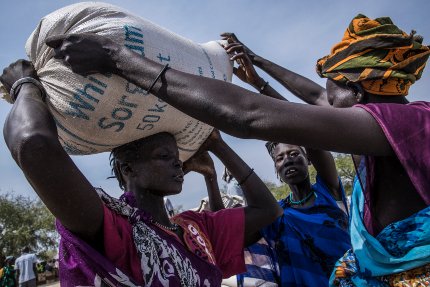COVID-19: UN poverty expert says social protection measures “full of holes”, urges global rethink
GENEVA (11 September 2020) – The UN’s independent expert on extreme poverty said in a report published today that while governments have adopted more than 1,400 social protection measures since the outbreak of COVID-19 they were largely insufficient, and warned the worst impacts on poverty were yet to come.
“The social safety nets put into place are full of holes,” said Olivier De Schutter, calling on world leaders at the UN General Assembly in New York to strengthen measures to help the poor. “These current measures are generally short-term, the funding is insufficient, and many people will inevitably fall between the cracks.”
The economic downturn resulting from the pandemic is unprecedented in times of peace since the Great Depression, he said, adding another 176 million people could fall into poverty when using a poverty baseline of 3.20 USD/day. This is equivalent to an increase in the poverty rate of 2.3 percentage points compared to a no-COVID-19 scenario.
World Bank data covering 113 countries show that US$589bn have been pledged for social protection, representing about 0.4 percent of the world’s GDP. However, the expert’s report says those initiatives will fail to prevent people falling into poverty. Many of the poorest people are excluded from the social protection schemes that are meant to support them.
“Many schemes require forms to be completed online and exclude large groups of the population who have no internet access or who have only weak digital literacy,” De Schutter said.
“Some schemes impose conditions impossible to fulfil for people in precarious forms of employment or without a permanent address. Migrants, especially undocumented migrants, often are not covered. And although some schemes have been designed to cover workers in the informal sector and in precarious forms of employment, many do not.”
There are 1.6 billion informal workers and 0.4 billion precarious workers worldwide, representing 61 percent of the global workforce.
De Schutter said most of the programmes were now being phased out, or can only be renewed through parliamentary processes with uncertain outcomes. “Families in poverty have by now used up whatever reserves they had, and sold their assets,” he said. “The worst impacts of the crisis on poverty are still to come.”
Even where programs are still in place, the allowances often are grossly insufficient to guarantee a decent standard of living.
The independent expert called upon world leaders to seize the moment, by calling for the establishment of strong social protection floors guided by human rights principles, to make them more effective in eradicating poverty and in reducing inequalities.
ENDS
Mr. Olivier De Schutter was appointed as the UN Special Rapporteur on extreme poverty and human rights by the UN Human Rights Council on 1st May 2020.
The Special Rapporteurs are part of what is known as the Special Procedures of the Human Rights Council. Special Procedures, the largest body of independent experts in the UN Human Rights system, is the general name of the Council’s independent fact-finding and monitoring mechanisms that address either specific country situations or thematic issues in all parts of the world. Special Procedures experts work on a voluntary basis; they are not UN staff and do not receive a salary for their work. They are independent from any government or organisation and serve in their individual capacity.

